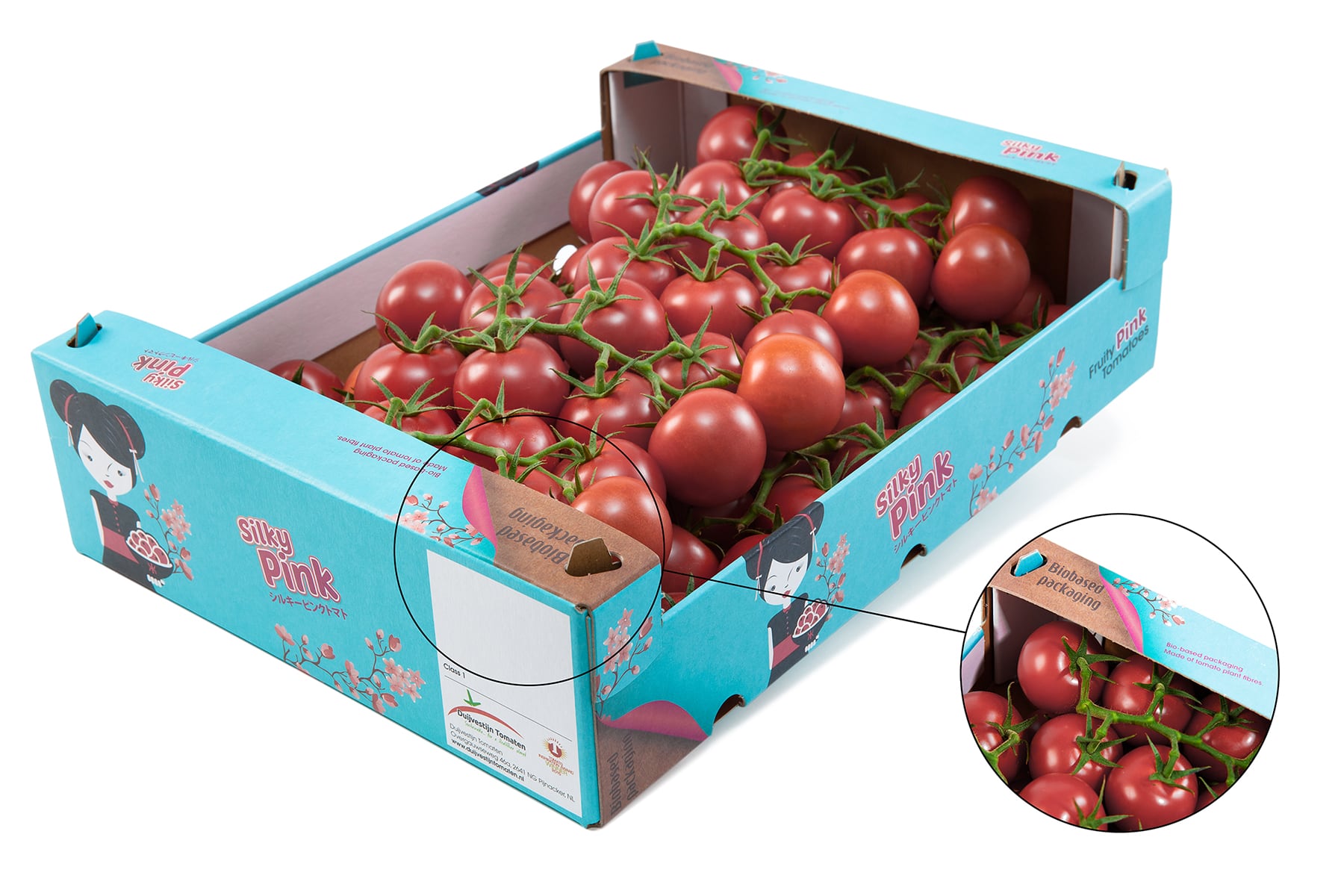The firm, previously Smurfit Kappa Solid Board Packaging, has created a 5kg tomato box made of tomato plant board.
The solid board has been used in packaging for Silky Pink cocktail tomatoes for Duijvestijn Tomaten, a producer of sustainably grown tomato products.
Solidus said the pink coloured tomatoes are popular in Asian cuisine so the 3kg Silky Pink Tomatoes bio-based packaging is also being delivered overseas.
It was also used to produce consumer packaging for 0.7 to 1kg vine tomatoes for Harvest House, the fruiting vegetables growers association.
The tomato plant fibre was made visible on the inside of the consumer packaging.
Circular approach
Solidus said waste paper is an essential component in the production of solid board.
The firm added wood fibres in the waste paper can be reused and are a valuable raw material for cardboard manufacturers.
Saskia Cooman, business developer at Solidus Solutions, said research on using tomato plant waste had been going on for more than one year with the packaging produced earlier this year.
“Common raw materials are old paper and the fibre is wood fibre which can be recycled several times but after a while it becomes weak," she told FoodProductionDaily.
“We looked at alternative fibres and considering the circular process of our carton production we wanted to use re-use raw materials in the maximum amount. Of course the alternative fibre has to have similar properties and we found the tomato plant was destroyed via composting after harvesting.”
Exploring other sources
At the end of each year, the tomato plant residue flow becomes available in large quantities from the growers and is composted.

However, it is possible to take out fibres from the plant, combine with waste paper fibres to process them into solid board.
The process involves several steps as tomato plants are at the growers after harvest and shredded into 1-2cms and transported to the waste convertor company before being wrapped in plastic blankets to prevent them from composting.
Cooman said the challenge was removing the water from the plants and optimizing the process.
“Production is in the pilot phase, we are working towards regular production and deciding on the machine that works best to produce the fibres. You need different equipment for the moulding process but there are options already available. Between six months and one year we should have scaled up and be ready for more production.
“We are using plants from The Netherlands only, indeed we know the amount of fibres is only enough to meet annual production at one of our carton production plants and we have four. We are considering looking at other plants such as cucumber and aubergine as the plants are alike but it needs more research as the growing process is different.
“The first products have been tomatoes so packed in their own fibre but it can be used for other products and the trials have gone well with the firms continuing to use it.”
Solidus Solutions has almost 1000 employees, four solid board mills and four converting plants in the Netherlands, Belgium and the UK as well as sales offices in France and Norway.
